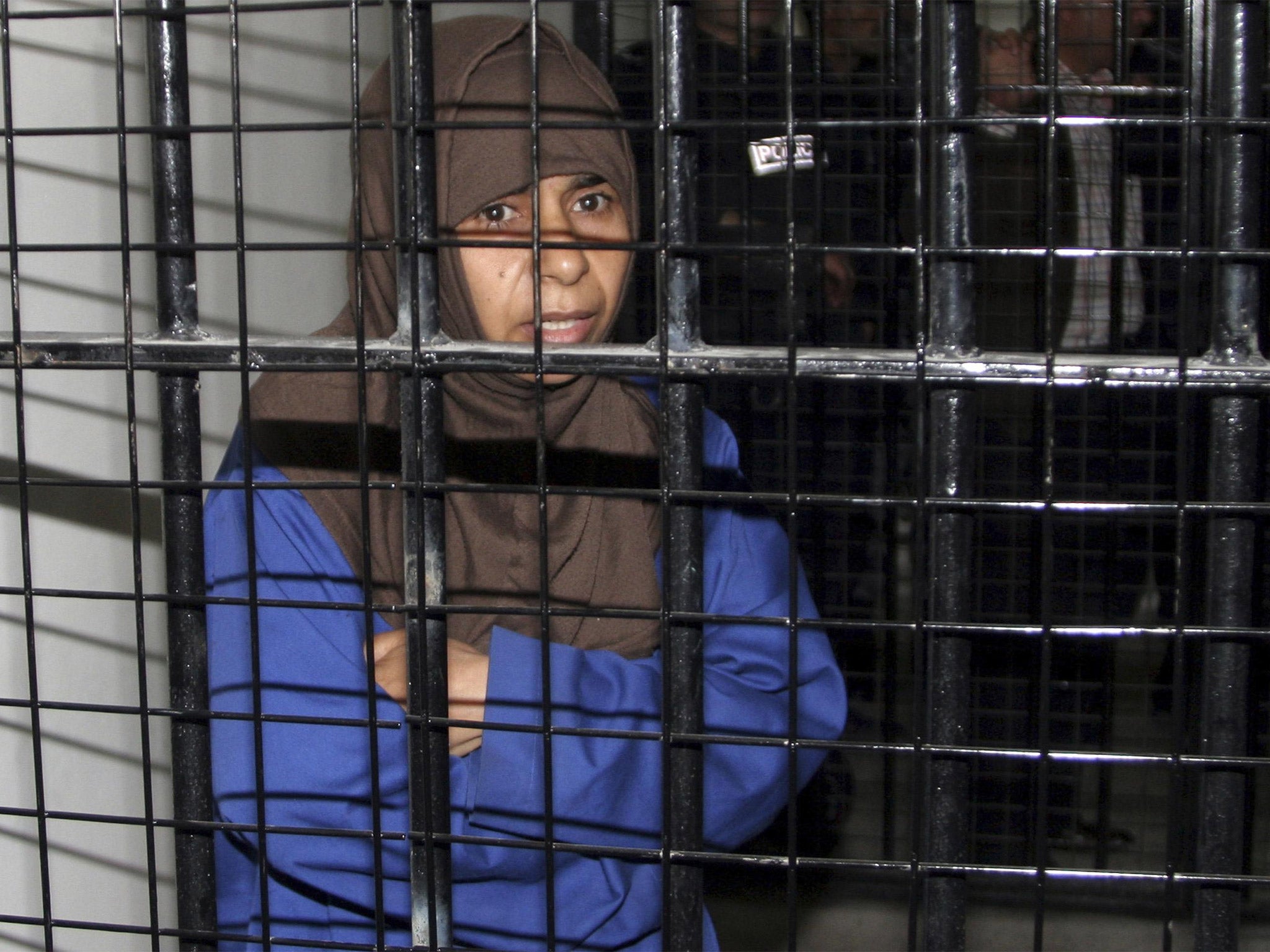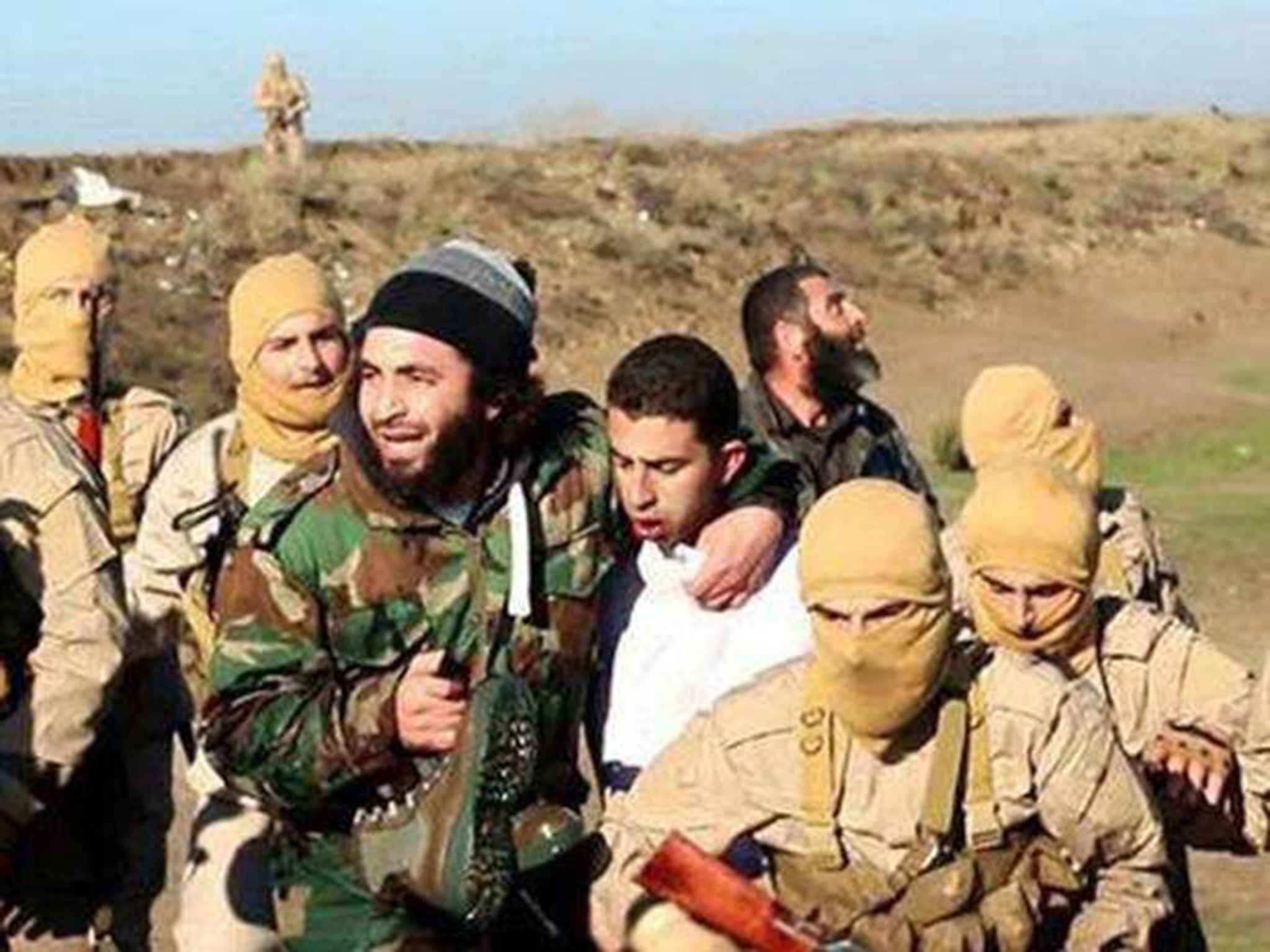Isis hostage crisis: Jordan's fear of internal strife is behind decision to release of bomber Sajida al-Rishawi
Members of the Jordanian pilot's tribe have protested in Amman, pressuring the government to agree to an exchange

Your support helps us to tell the story
From reproductive rights to climate change to Big Tech, The Independent is on the ground when the story is developing. Whether it's investigating the financials of Elon Musk's pro-Trump PAC or producing our latest documentary, 'The A Word', which shines a light on the American women fighting for reproductive rights, we know how important it is to parse out the facts from the messaging.
At such a critical moment in US history, we need reporters on the ground. Your donation allows us to keep sending journalists to speak to both sides of the story.
The Independent is trusted by Americans across the entire political spectrum. And unlike many other quality news outlets, we choose not to lock Americans out of our reporting and analysis with paywalls. We believe quality journalism should be available to everyone, paid for by those who can afford it.
Your support makes all the difference.The motivations behind Jordan’s decision to release Sajida al-Rishawi lie in its wish to maintain domestic stability.
The rise of Isis has put Jordan in a tough position. Its proximity to Syria and Iraq and its close alliances with the US, Saudi Arabia and Israel have led it to host training for the moderate Syrian opposition at the request of Washington and Riyadh as well as joining the anti-Isis coalition headed by the US in order to protect both itself and its allies.
But Jordan is worried that the more entrenched its engagement in fighting Isis becomes, the more it is exposing itself to instability.
Isis’s geographical expansion is bringing it closer to the Syrian-Jordanian border. As some Jordanian tribes in border areas like Maan have pledged allegiance to Isis, Amman is worried that a southern expansion for Isis would empower those tribes against the Jordanian state.
An extra element is that, following the demands of Isis to release Rishawi in exchange for Jordanian pilot Lieutenant Mu'ath al-Kaseasbeh, members of the pilot’s tribe have protested in Amman, pressuring the government to agree to exchange him for Rishawi.

Rishawi was never a high-level prisoner. She is reported to be the sister of an Iraqi aide to the late al-Qaeda leader Abu Musab al-Zarqawi, but she is not a military commander. Her importance for Isis is more symbolic than operational. This is what has made her a low-risk bet for Jordan. But the agreement to release her shows Jordan is as concerned about instability from its own tribes as much as about security threats from Isis.
Lina Khatib is director of Carnegie Middle East
Join our commenting forum
Join thought-provoking conversations, follow other Independent readers and see their replies
Comments